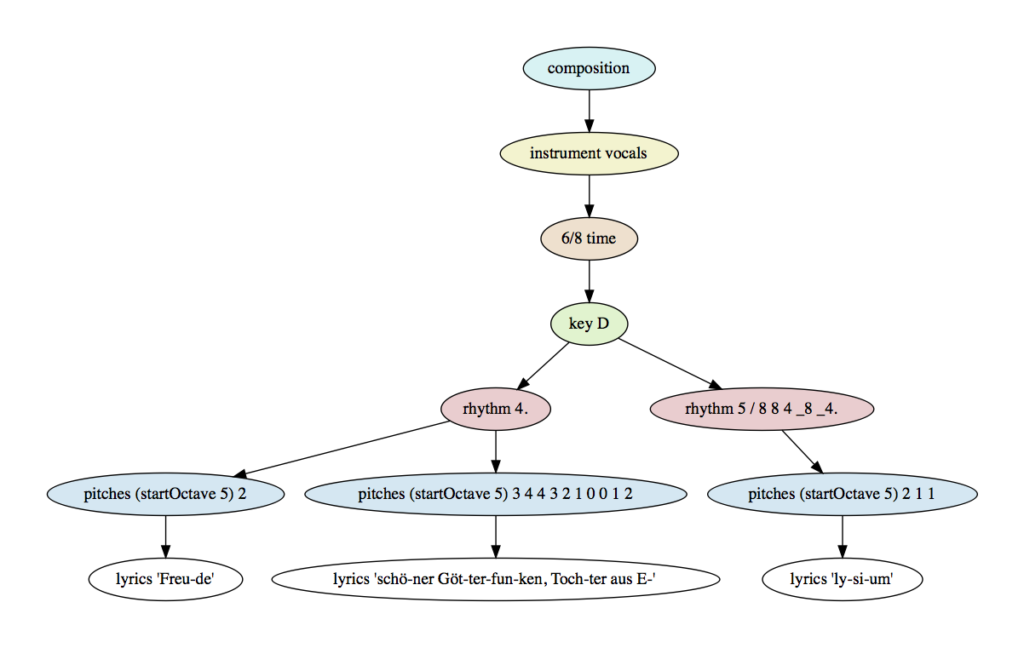In this example, a short excerpt from the famous chorus of Beethoven’s Symphony No. 9 in D minor, Op. 125 is modeled. The soprano score part is shown below:
This can concisely be expressed in terms of the following context tree model. Note that the rhythmic context defining a dotted quarter note (4.) is reused throught the first six measures. The first two notes are a result of an automatic expansion: one pitch is defined (namely the zero-based scale degree 2) and two syllables (namely “Freu” and “de). This results in two syllables with the same pitch.
The equivalent syntactical representation is:
composition
{
instrument vocals, time 6/8, key D
{
rhythm 4.
{
pitches(startOctave 5) 2
{
lyrics "Freu-de"
}
pitches(startOctave 5) 3 4 4 3 2 1 0 0 1 2
{
lyrics "schö-ner Göt-ter-fun-ken, Toch-ter aus E-"
}
}
rhythm 5/8 8 4 _8 _4.
{
pitches(startOctave 5) 2 1 1
{
lyrics "ly-si-um"
}
}
}
}
The source code and the corresponding representations shown in this example are also available in the github example repository.


